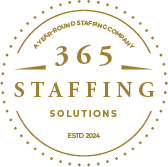In today's fast-paced business world, executives wear many hats. They juggle strategic planning, client relations, team leadership, and a constant stream of daily tasks. An exceptional Executive Assistant (EA) can be the difference between feeling overwhelmed and empowered. But how do you find the perfect candidate who can anticipate your needs, manage your schedule, and seamlessly support your success? This guide takes you through the essential steps of hiring a great Executive Assistant in 2024.
Defining Your Needs: The Ideal Assistant Profile
Before embarking on your search, take a step back and clearly define your ideal EA. Consider the following:
- Skills and Experience: What level of experience do you require? Are there specific technical skills needed, such as proficiency in scheduling software or project management tools?
- Industry Knowledge: Would industry-specific knowledge be beneficial for understanding your business context?
- Personality and Work Style: Do you need someone detail-oriented and independent, or someone who thrives on collaboration and brainstorming? Consider your own personality and how you prefer to work.
- Organizational Skills: This is paramount. Your EA will be the master of your schedule and to-do list.
- Discretion and Confidentiality: Your EA will be privy to sensitive information. Trustworthiness and discretion are essential qualities.
- Communication Skills: Excellent written and verbal communication are crucial for interacting with colleagues, clients, and managing external communication effectively.
Crafting a Compelling Job Description
A well-written job description attracts the right candidates and sets clear expectations. Here's what to include:
- Company Overview: Briefly introduce your company, its mission, and its culture.
- Job Summary: Clearly define the role of the EA, highlighting key responsibilities.
- Required Skills and Qualifications: Outline the essential skills and experience you seek.
- Desired Skills and Qualities: Mention any plus factors that would strengthen the candidate's suitability.
- Benefits: Showcase the attractive aspects of your company culture and compensation package.
Leveraging the Right Channels for Your Search
Once your job description is ready, it's time to attract qualified candidates. Here are some effective channels to consider:
- Professional Networking Sites: Utilize platforms like LinkedIn to target experienced EAs.
- Executive Assistant Recruitment Agencies: These agencies specialize in placing EAs and can offer valuable insights and pre-vetted candidates.
- Internal Referrals: Tap into your existing network. Encourage current employees to refer qualified individuals within their professional circles.
- Online Job Boards: Popular job boards like Indeed and Glassdoor can reach a broad pool of candidates. However, ensure your listing stands out with a compelling description.
The Art of the Interview: Uncovering the Perfect Fit
The interview process allows you to assess a candidate's skills and suitability for the role. Here's how to make the most of it:
- Structured Interview Format: Develop a set of interview questions that are relevant to the job requirements. Ask open-ended questions that encourage detailed responses.
- Behavioral Interviewing: Focus on past behaviors to predict future performance. For example, ask the candidate to describe a time they had to manage multiple deadlines or resolve a complex issue.
- Test Skills and Knowledge: Consider including practical tests to assess relevant skills like scheduling software proficiency, email writing, or basic administrative tasks.
- Assess Cultural Fit: Beyond skills, ensure the candidate aligns with your company culture. Pay attention to interpersonal skills, communication style, and overall demeanor.
Going Beyond the Resume: The Reference Check
Reference checks are crucial for verifying a candidate's skills and experience. Speak to past employers and colleagues to gain deeper insights into the candidate's work ethic, strengths, and any potential red flags. Ask specific questions about the candidate's performance, ability to manage pressure, and their fit within their previous team.
Making the Offer and Onboarding Your New EA
Once you've found the perfect candidate, it's time to extend the offer. Clearly outline the compensation package, benefits, and start date.
Onboarding is key to setting your new EA up for success. Develop a comprehensive onboarding plan that includes:
- Company Orientation: Introduce the company culture, mission, and key personnel.
- Role-Specific Training: Provide training on specific software, tools, and processes used by your team.
- Shadowing and Mentorship: Pair the new EA with a senior team member for guidance and ongoing support.
Building a Strong Working Relationship
Communication is paramount for a successful EA-Executive partnership. Regularly discuss priorities, set expectations, and provide ongoing feedback.
Invest in your EA's professional development. Encourage participation in relevant workshops, conferences, or online courses to enhance their skillset.
Conclusion: The Value of a Great Executive Assistant
Hiring a great Executive Assistant is an investment in your own productivity and well-being. By taking a strategic approach to the search process, focusing on the right qualities, and fostering a strong working relationship, you can empower your EA to become an invaluable asset to your success. Remember, a great EA is not just an assistant - they are a trusted partner who can help you navigate the complexities of the business world and achieve your goals.
Bonus Tip: Once you've found your dream EA, take the time to show appreciation. A simple "thank you" or acknowledging their achievements can go a long way in boosting morale and solidifying a positive working relationship.


